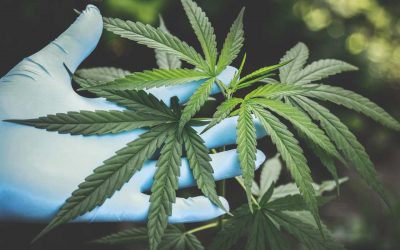Last updated: October, 2025
Drug addiction is one of Europe’s most persistent public health challenges. Across the continent, millions of people use substances that affect mood, perception, and behaviour. Sometimes recreationally, sometimes as a way to cope with stress, pain, or trauma.
Understanding which drugs are most commonly used and why they become addictive is the first step toward prevention and recovery. At Hacienda Paradiso, we help individuals overcome substance dependence through medically supervised detox and personalised therapy in a restorative natural setting.
The most common drugs addictions in Europe today
Drugs are substances that alter brain function, influencing thoughts, emotions, and physical sensations. They may act as stimulants, increasing alertness and energy, or as depressants, slowing down body processes. Some alter perception and consciousness entirely.
The level of harm caused by any drug depends on several factors: the substance itself, how often it’s used, the environment where it’s consumed, and the psychological makeup of the person using it.
In Europe, the most commonly used and addictive substances include cannabis, MDMA (ecstasy), cocaine, heroin, nicotine, and alcohol. Although usage patterns vary between countries, the underlying issue (dependency) remains widespread.
1. Cannabis
Cannabis is the most commonly used illicit drug in Europe. It’s particularly prevalent among young adults in countries like France, the United Kingdom, the Czech Republic, Ireland, and Switzerland.
While cannabis is often seen as a “soft” drug, long-term use can lead to psychological dependence, impaired concentration, and motivation problems. High-THC strains can also trigger anxiety, paranoia, or worsen existing mental health issues.
Because of its widespread availability and growing social acceptance, cannabis addiction often goes unnoticed until it begins to impact work, studies, or relationships.
2. MDMA (Ecstasy)
Ecstasy, or MDMA, ranks second in popularity across Europe, especially in nightlife settings. Most of the world’s MDMA seized by law enforcement originates from Western Europe, particularly the Netherlands and Belgium, where production is highest.
MDMA acts as both a stimulant and a hallucinogen, releasing large amounts of serotonin, dopamine, and norepinephrine in the brain. This produces intense euphoria and emotional warmth but also leads to serotonin depletion — causing fatigue, anxiety, and depression after use.
With regular consumption, tolerance builds quickly, and users may seek higher doses or mix substances, increasing the risk of dependence and long-term cognitive damage.
3. Cocaine
Cocaine use has grown steadily across Europe, especially in Spain, the UK, Ireland, Denmark, and Italy. It’s often associated with professional or social environments, which can mask the early signs of addiction.
Cocaine boosts dopamine levels dramatically, creating feelings of confidence, energy, and control. However, when the effects wear off, users often feel anxious or depressed, leading to compulsive re-use.
According to addiction experts, about one in five people who try cocaine will develop dependence at some point in their lives. Crack cocaine, the smokable version, is even more addictive due to its faster and more intense effect on the brain’s reward system.
4. Heroin
Heroin remains one of the most dangerous and addictive drugs in the world. Though overall use has declined in Western Europe, it continues to cause significant harm, especially in Eastern Europe, the UK, and Italy.
As an opioid, heroin floods the brain with dopamine, creating powerful euphoria and deep relaxation. Dependence forms rapidly, and withdrawal symptoms (including pain, nausea, and severe anxiety) make quitting extremely difficult without professional treatment.
Heroin addiction often leads to serious health complications such as collapsed veins, infections, and a high risk of overdose.
5. Nicotine
Nicotine, the primary addictive substance in tobacco, remains one of Europe’s most widespread addictions. Despite public health campaigns and smoking bans, millions of Europeans continue to smoke daily.
Nicotine reaches the brain within seconds, triggering a dopamine release that temporarily reduces stress and increases focus. However, it also creates one of the strongest psychological dependencies of any substance.
Long-term use is linked to heart disease, lung cancer, and chronic respiratory problems, making it one of the deadliest addictions globally, even though it’s legal and socially accepted.
6. Alcohol
Although legal, alcohol is one of Europe’s most abused substances and causes immense harm to both individuals and society. It’s deeply embedded in European culture, making dependency harder to identify.
Alcohol increases dopamine levels in the brain’s reward system and acts as both a stimulant and a depressant. While moderate drinking may seem harmless, habitual heavy consumption leads to tolerance, physical dependence, and severe withdrawal symptoms when stopped.
Alcohol addiction contributes to millions of premature deaths each year, as well as domestic violence, mental illness, and workplace accidents.
At Hacienda Paradiso, alcohol detox and rehabilitation focus on breaking this cycle through medical stabilization, emotional support, and lifestyle re-education.

How to Overcome Addiction
Whatever the substance, recovery always begins with one decision: seeking help. Addiction affects the brain’s chemistry, but with the right treatment, healing is possible.
At Hacienda Paradiso, we offer personalized rehab programs for alcohol, drug, and medication addiction. Treatment begins with safe, medically supervised detox, followed by therapy to address the emotional and psychological roots of dependence.
Our holistic approach integrates traditional psychotherapy with mindfulness, fitness, and nutrition — helping individuals rebuild their health and confidence.
Choosing rehab abroad can make recovery more effective by removing triggers and distractions. Being away from environments associated with drug use — friends who consume, familiar places, or stress-inducing routines — allows the mind to reset and focus on healing.
A New Start at Hacienda Paradiso
Nestled in the natural beauty of southern Spain, Hacienda Paradiso combines expert medical care with the serenity of nature. As the world’s first eco-rehab, it provides evidence-based treatment in a sustainable, restorative setting.
Here, recovery is not only about detoxification but about rediscovering purpose and peace of mind. With compassionate guidance, professional supervision, and long-term aftercare, change becomes both realistic and lasting.
FAQ — Common Addictions in Europe
Cannabis remains the most widely used illicit substance across Europe, especially among young adults.
Heroin, cocaine, nicotine, and alcohol are among the most addictive substances, both physically and psychologically.
Yes. Alcohol is a psychoactive substance that alters brain function and can cause dependence, even though it’s legal.
While opioid use has declined, cocaine and MDMA consumption have risen in recent years, particularly among younger populations.
The most effective treatment combines medical detox, therapy, and holistic care to address both physical dependence and emotional recovery.








